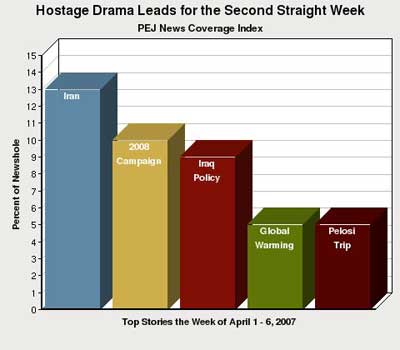Can you believe we’re already several galloping laps into horse race reporting on the 2008 presidential campaign? Rolling Stone‘s Matt Taibbi describes this phenomenon more eloquently than I can (and with more profanity than I would probably dare) here. For anyone already snorting in disgust and tuning out the constant stream of chatter about who’s raised more money, who is realigning their image this way or that (with what hunting photo-op or change of hairdo), and who’s notched up a point and a half in Iowa polls, Taibbi is spot on:
The election, after all, is nearly a full Martian year away, with a Super Bowl and two World Series still to play out in between—which means that the “urgency” of breaking campaign news is now and will remain for at least a year an almost 100% media concoction.
In my mind, this early coverage is a two-sided coin. Part of me believes that the country is hungry for dialogue on a score of important issues and that the ’08 campaign, no matter how premature, is bound to spark it. The novelty of non-traditional frontrunners (that is, not the usual pack of white guys), not to mention the celebrity status of Hillary Clinton and, increasingly, Barack Obama, will certainly stir up attention among non-traditional voters—expanding the possibilities for that dialogue to be a rousing one.
But, the less idealistic part of me knows horse race reporting is the norm. Sadly, it’s notorious for circumventing real, solid, substantive coverage of candidates’ issue positions or voting records—the kind of reporting that sparks dialogue—in favor of tallies of cash-on-hand and the minutiae of strategy and personality—the kind that suffocates it. Further, and perhaps more importantly, the horse race has already begun to push other serious news stories to the sidelines.

And, to be clear, this happened to be a really good week for global warming coverage. This was only the third week all year that the issue even broke into the top ten news stories (a milestone to celebrate). Still, the horse race wins out—even a Martian year away from the election. And at the cost of vigorous reporting on the stuff we really need to know. Obviously the candidates are limited in the extent they can set the agenda—beyond changing tie colors or hugging more babies than the others. But, let’s hope the corral of presidential hopefuls sees fit to keep climate at the front of the race.








